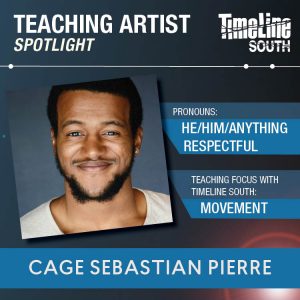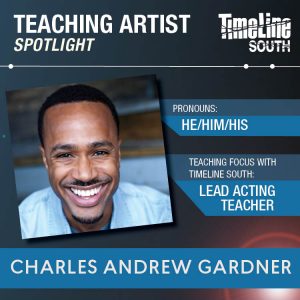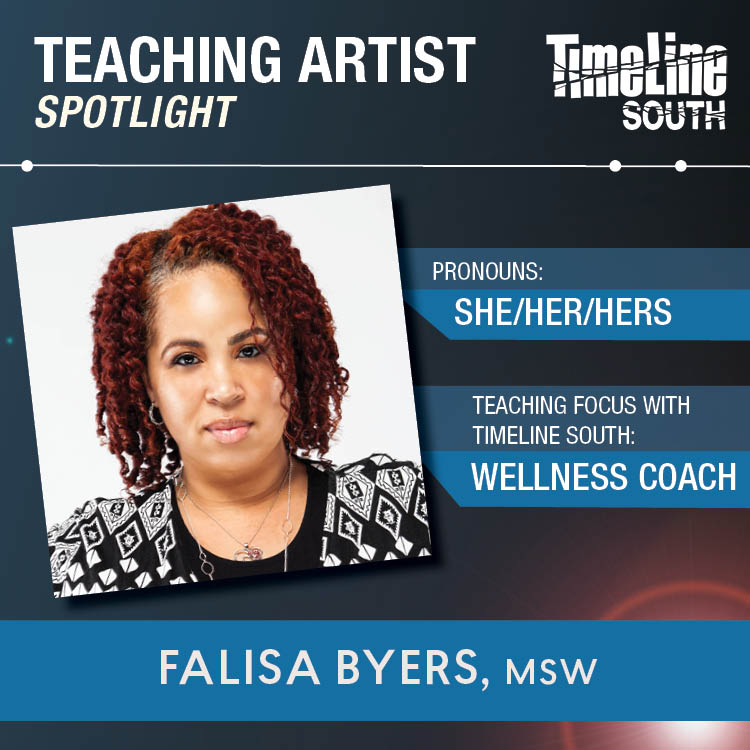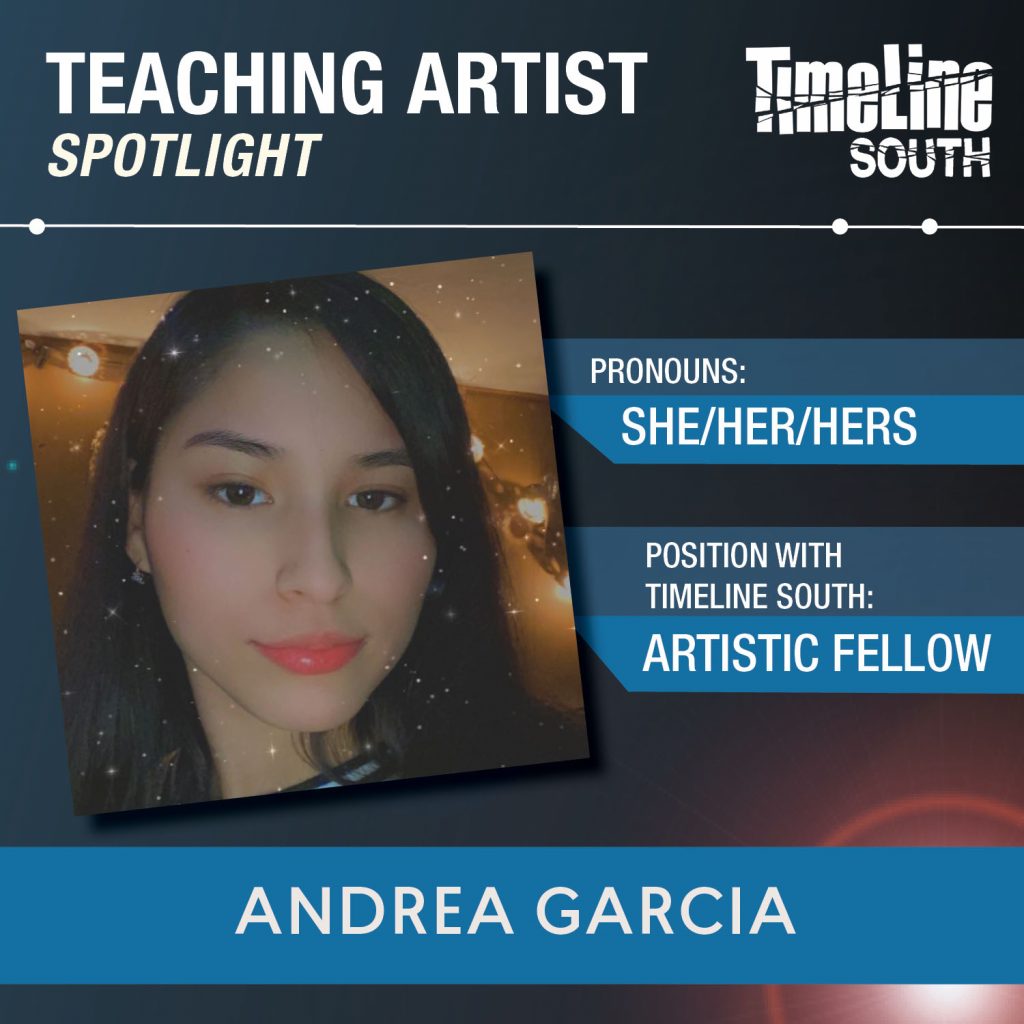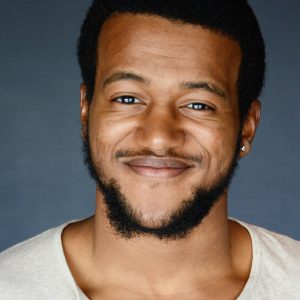For the past four summers, Living History’s TimeLine South has offered an ensemble of teenagers a safe space for self-expression, creativity, and ensemble building on the south side of Chicago. Through this six-week summer arts program, students engage in advocacy and community building through art as a way to illuminate some of their community’s toughest challenges and spark change. As part of our Living History Education Program, TimeLine South promotes leadership in the arts and teaches teens that theatre can also be a vehicle for social justice.
This summer, in response to the continuing COVID-19 pandemic, TimeLine South took place as a virtual program, committed to the same goals of providing teens a safe space for self-expression, creativity, and ensemble building.
During this program, the 10 young people who make up the 2021 TimeLine South ensemble learn about a different facet of theatre with an expert. We’re featuring members of the teaching team to let you sneak a peek behind the curtains at this transformative summer program; follow along with the program as new teachers are added here throughout its run!
“Creating in a predominately black space normalizes the ‘isms’ of my culture as integral to the professional and creative process … I cannot underplay the importance of not feeling foreign.”
Tell us about what you’re teaching for TimeLine South. Why is it important now?
TimeLine South is important to me for many reasons, but the two I’ll share are these: The first is that creating in a predominately black space normalizes the “isms” of my culture as integral to the professional and creative process. There is room for me to bring the idiosyncrasies of my personal and shared history and know they will be met with snaps, laughter, and understanding. I cannot underplay the importance of not feeling foreign.
The second is that asking the youth what they think is one of the most beneficial things you can do, so creating a space to develop opinions invites the youth to be active members of the social and artistic landscape of their communities and themselves.
What’s a memorable moment you had during your sessions? Why did it stick with you?
We had a conversation about triggers, trauma, and how that manifests physically and systemically. We learned a lot about each other’s personal connections to those systems, specifically to gentrification, and by extension capitalism. After sharing, the most incredible part was the conversation we had surrounding how to begin healing those things. Those things came through expression of our clothing, how we cultivate our personal living space, seeking professional help for mental health, among other things.
What do you hope this ensemble walks away with at the end of these six weeks?
A more developed taste, and confidence in detailing what that is. I believe that one of the biggest threats to our mental and physical freedom is the blind acceptance of what is offered because an authority or the masses has said so. So being able to know and share what they like, and what they are aligned with encourages the critical thinking that is necessary to build a more nuanced point of view which for me is a gateway to deconstructing the blanketed views we can have that often inhibits us from connecting on a deeper level with each other.
“If you don’t know what’s available to you, how can you ever hope to attain it?”

Tell us about what you’re teaching for TimeLine South. Why is it important now?
Having access to programs like TimeLine South is so important for the teens growth and development, not only as artists but also as a people. If you don’t know what’s available to you, how can you ever hope to attain it? I grew up on the Southside and was lucky enough to find programs that are still making an impact on life today. That’s why I’m so excited to be teaching with TimeLine South this summer!
What’s a memorable moment you had during your sessions? Why did it stick with you?
We began devising monologues for the play last week and I was completely blown away by the ensemble’s vulnerability, honesty, and authenticity! These teens are truly the future — and the future is looking bright!
What do you hope this ensemble walks away with at the end of these six weeks?
I hope that the ensemble walks away at the end of the program with the confidence to share their words with pride, knowing that what they say can and will have a great effect on their peers and on the world!
“Art can be a form of resistance and drive change.”
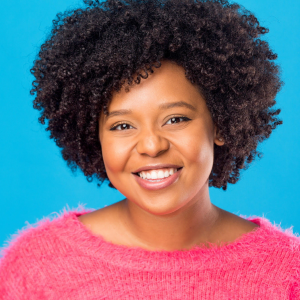
Tell us about what you’re teaching for TimeLine South. Why is it important now?
Teaching for TimeLine South is important now because everyone just spent a year at home, dealing with collective trauma and I believe creating avenues for teens to express themselves and make space for themselves is urgently needed. Teens who are aware of their trauma and find ways to cope become healed and conscious adults. This program encourages healing and self reflection, something we all need right now.
What’s a memorable moment you had during your sessions? Why did it stick with you?
A memorable moment was when the students shared their mini life stories. Teens see, hear, and experience so much before adulthood, and just realizing that this is the best time for us all to learn how to process.
What do you hope this ensemble walks away with at the end of these six weeks?
I hope they walk away knowing they matter, that there is value in their thoughts and power in their words, that art can be a form of resistance and drive change.
“I hope they walk away feeling more brave, loved, healed and whole. I hope they are able to stand true to who they are and fight for what they believe in.”
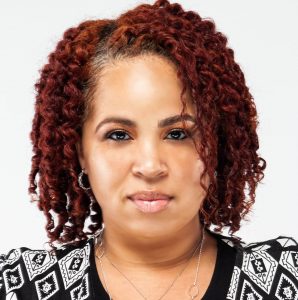
Tell us about what you’re teaching for TimeLine South. Why is it important now?
TimeLine South is important because it provides youth with a space that is safe for them to show up as their whole authentic selves without being judged. Today’s society criticizes young people for being brave and courageous enough to speak up and out and not just conform to what they are being told is right or wrong. At TimeLine South, youth are able to express themselves and use Theatre and art as a pathway to healing from trauma and fighting against social injustices as well as building community and life long connections.
What’s a memorable moment you had during your sessions? Why did it stick with you?
This is a tough question… lol! The entire program is memorable for me because of the connections, courage to open up and be vulnerable, and the growth that I am able to witness amongst the teen ensemble. One of the most memorable moments would have to be when the teens felt safe enough to share some of the issues they face everyday during the Trauma and self care workshop I facilitated. To know that I am able to create a space that allows them to feel safe enough to be open with each other and me provides more assurance that the work I do is so beneficial to their growth and progression in life.
What do you hope this ensemble walks away with at the end of these six weeks?
I hope the ensemble walks away knowing how valuable they are and how strong their voices are. I hope they walk away feeling more brave, loved, healed and whole. I hope they are able to stand true to who they are and fight for what they believe in.
“I was really shy when I joined TimeLine. Throughout the years it helped me realize it is okay to not always agree with others, but to learn to agree to disagree and be optimistic. … You never know where that journey might take you or the new doors you will open along the way!”
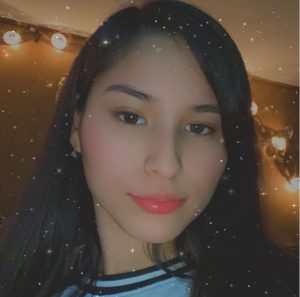
Tell us about what you’re teaching for TimeLine South. Why is it important now?
Teaching at TimeLine South has allowed me to be more confident in speaking in front of others. To allow to express myself and share ideas. I was really shy when I joined TimeLine. Throughout the years it helped me realize it is okay to not always agree with others, but to learn to agree to disagree and be optimistic. Being open to try new things even if it makes you uncomfortable. You never know where that journey might take you or the new doors you will open along the way!
What’s a memorable moment you had during your sessions? Why did it stick with you?
The most memorable moment I had with the ensemble was all the laughs we shared. Even the moments where we had serious conversations on what we feel needs to be changed in this society in order to be accepted and loved equally. The importance of healing and trauma in our communities leads to difficult times; healing can allow you to grow and bloom into the person you want to become. Unfortunately trauma has made us become resilient, but with that, we work hard to make a change and still inspire and motivate others. The ensemble wanted to represent the disability community by having a character that has experienced a car crash, leading the daughter to have to care for the mother in many ways that can be difficult. As a person with a disability, knowing the struggles of having enough funds to be able to have transportation or medical insurance, having to get your wheelchair fixed, worrying about accessibility in workplaces and schools: it’s something that we shouldn’t have to go through alone, but with support. Our voices are just as important as others. They shouldn’t go unheard! I’d say TimeLine has allowed me to have a voice in this community of young artists!
What do you hope this ensemble walks away with at the end of these six weeks?
What I hope for this ensemble to take away from this six weeks is that the conversations are never over! Their voices matter! It is important to always talk about what change needs to be done. How can we help our community? To know that they always have a home at TimeLine!
As the capstone to this program, each summer the TimeLine South ensemble creates their own unique piece to produce and perform at the end of their six weeks together. Everything from the costumes to the sound, the staging to the dialogue are all created and cultivated by the students. Join us for this year’s TimeLine South final performance, Flowers Grow On Trees, on Friday, August 20 at 7pm CDT!

